第40章
When we turn to the psychic phase of human life an exactly analogous phenomenon presents itself.The intelligence, emotions, and desires of the human infant at birth differ not at all perceptibly, as its sex may be male or female; and such psychic differences as appear to exist in later childhood are undoubtedly very largely the result of artificial training, forcing on the appearance of psychic sexual divergencies long before they would tend spontaneously to appear; as where sports and occupations are interdicted to young children on the ground of their supposed sexual unfitness; as when an infant female is forcibly prevented from climbing or shouting, and the infant male from amusing himself with needle and thread or dolls.Even in the fully adult human, and in spite of differences of training, the psychic activities over a large extent of life appear to be absolutely identical.The male and female brains acquire languages, solve mathematical problems, and master scientific detail in a manner wholly indistinguishable: as illustrated by the fact that in modern universities the papers sent in by male and female candidates are as a rule absolutely identical in type.Placed in like external conditions, their tastes and emotions, over a vast part of the surface of life, are identical; and, in an immense number of those cases where psychic sex differences appear to exist, subject to rigid analysis they are found to be purely artificial creations, for, when other races or classes are studied, they are found non-existent as sexual characteristics; as when the female is supposed by ignorant persons in modern European societies to have an inherent love for bright colours and ornaments, not shared by the male; while experience of other societies and past social conditions prove that it is as often the male who has been even more desirous of attiring himself in bright raiment and adorning himself with brilliant jewels; or as when, among certain tribes of savages, the use of tobacco is supposed to be a peculiarly female prerogative, while, in some modern societies, it is supposed to have some relation to masculinity.(The savage male of today when attired in his paint, feathers, cats' tails and necklaces is an immeasurably more ornamented and imposing figure than his female, even when fully attired for a dance in beads and bangles: the Oriental male has sometimes scarcely been able to walk under the weight of his ornaments; and the males of Europe a couple of centuries ago, with their powdered wigs, lace ruffles and cuffs, paste buckles, feathered cocked hats, and patches were quite as ridiculous in their excess of adornment as the complementary females of their own day, or the most parasitic females of this.Both in the class and the individual, whether male or female, an intense love of dress and meretricious external adornment is almost invariably the concomitant and outcome of parasitism.Were the parasite female class in our own societies today to pass away, French fashions with their easeless and grotesque variations (shaped not for use or beauty, but the attracting of attention)would die out.And the extent to which any woman today, not herself belonging to the parasite class and still labouring, attempts to follow afar off the fashions of the parasite, may be taken generally as an almost certain indication of the ease with which she would accept parasitism were its conditions offered her.The tendency of the cultured and intellectually labouring woman of today to adopt a more rational type of attire, less shaped to attract attention to the individual than to confer comfort and abstain from impeding activity, is often spoken of as an attempt on the part of woman slavishly to imitate man.What is really taking place is, that like causes are producing like effects on human creatures with common characteristics.)But there remain certain psychic differences in attitude, on the part of male and female as such, which are inherent and not artificial: and, in the psychic human world, it is exactly as we approach the sphere of sexual and reproductive activity, with those emotions and instincts connected directly with sex and the reproduction of the race, that a difference does appear.
In the animal world all forms of psychic variations are found allying themselves now with the male sex form, and then with the female.In the insect and fish worlds, where the female forms are generally larger and stronger than the male, the female is generally more pugnacious and predatory than the male.Among birds-of-prey, where also the female form is larger and stronger than the male, the psychic differences seem very small.Among eagles and other allied forms, which are strictly monogamous, the affection of the female for the male is so great that she is said never to mate again if the male dies, and both watch over and care for the young with extreme solicitude.The ostrich male form, though perhaps larger than the female, shares with her the labour of hatching the eggs, relieving the hen of her duty at a fixed hour daily: and his care for the young when hatched is as tender as hers.Among song-birds, in which the male and female forms are so alike as sometimes to be indistinguishable, and which are also monogamous, the male and female forms not only exhibit the same passionate affection for each other (in the case of the South African cock-o-veet, they have one answering love-song between them; the male sounding two or three notes and the female completing it with two or three more), but they build the nest together and rear the young with an equal devotion.